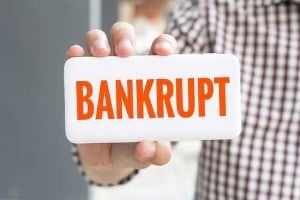Qualifying for Chapter 7 Bankruptcy
 Are you struggling to pay your mortgage, credit card bills, and car payments? If you need debt relief, filing for bankruptcy may be your best option. Here is some important information about qualifying for Chapter 7 bankruptcy.
Are you struggling to pay your mortgage, credit card bills, and car payments? If you need debt relief, filing for bankruptcy may be your best option. Here is some important information about qualifying for Chapter 7 bankruptcy.
Qualifying for Chapter 7 Bankruptcy | Requirements
The first step in the bankruptcy process is to take a means test, which determines your level of debt and the type of bankruptcy for which you qualify. If you have limited income and have a high amount of unsecured debt, you will more than likely qualify for Chapter 7 bankruptcy. If you have a steady income, but are struggling to make ends meet, Chapter 13 bankruptcy may be a better option.
If you qualify for Chapter 7 bankruptcy, much of your unsecured debt will be discharged, excluding any tax liability or student loans. We will carefully explain the specifics and answer all of your questions during a detailed consultation. Rest assured, you will fully understand what to expect from Chapter 7 bankruptcy.
Download Our FREE Bankruptcy and Debt Relief Guide
Qualifying for Chapter 7 Bankruptcy | Benefits
The biggest reason you might want to choose Chapter 7 bankruptcy is the ability to discharge your debts (although there are some debts that cannot be discharged under Chapter 7, such as student loans, alimony and child support).
If you’re a business, you might choose to file for Chapter 7 if you intend to go out of business but want to take care of a few last projects until you do. To do this without worry about annoying creditors, filing for Chapter 7 will provide you with the automatic stay. Once the project is complete, you can wind down your business under the supervision of the bankruptcy trustee.
Qualifying for Chapter 7 Bankruptcy | Disadvantages
The ability to discharge most of your debts makes Chapter 7 bankruptcy very desirable. However, in some situations, it’s probably a bad idea for you to file for Chapter 7. For example, if you’re a business that files for Chapter 7 bankruptcy, your business will cease to exist once the bankruptcy process is completed. If you wish to continue your business after declaring bankruptcy, Chapter 7 is not an option for you.
If you want to keep certain assets, that’s another big reason not to file for Chapter 7 bankruptcy. Chapter 7 provides for relatively few exempt assets. So, unless a specific New York law allows for a particular exemption, most of your property will be lost in bankruptcy. Finally, a Chapter 7 bankruptcy will be on your credit history for 10 years (it’s only seven years for Chapter 13 bankruptcy).
If you’d like to learn more about filing for Chapter 7 bankruptcy, don’t hesitate to contact one of our skilled bankruptcy attorneys at Cole, Sorrentino, Hurley, Hewner, & Gambino, P.C.,. We offer flexible appointment schedules and a free initial consultation.
